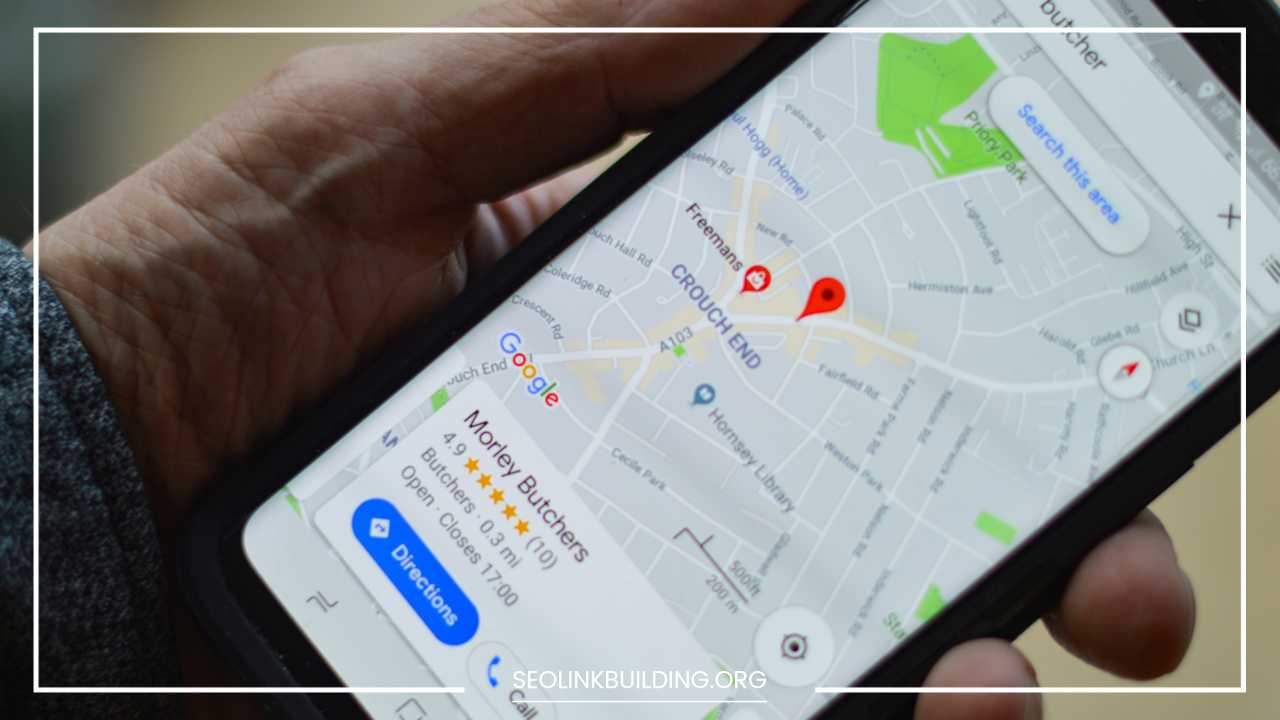Local SEO Strategy: Effective Strategies to Improve Local SEO

Local SEO Strategy
In the digital era, businesses face fierce competition to attract local customers. As a result, an effective local SEO (Search Engine Optimization) strategy has become imperative for any business looking to thrive in its local market.
This article will delve into various strategies that businesses can employ to improve their local SEO and enhance their online visibility.
Understanding Local SEO
Importance of Local SEO
Local SEO focuses on optimizing a business’s online presence to attract more local customers through search engines like Google, Bing, or Yelp.
It ensures that when potential customers search for products or services in a specific geographic area, the business appears at the top of search engine results, making it easier for local consumers to find and engage with the company.
Differences from Traditional SEO
Local SEO shares similarities with traditional SEO but caters to a more geographically constrained audience.
While traditional SEO aims to rank higher globally, local SEO emphasizes ranking within a specific location or region, making it relevant to the people searching in that area.
Keyword Research for Local SEO
Targeting Local Keywords
Effective local SEO starts with thorough keyword research. Identify and target keywords that reflect local intent and are relevant to your business.
For instance, if you run a bakery in Chicago, optimizing for “best cupcakes in Chicago” will likely yield better results than simply “best cupcakes.”
Long-Tail Keywords for Local Searches
Utilize long-tail keywords for better chances of ranking higher in local searches. Long-tail keywords are more specific phrases that users often search for, such as “affordable yoga classes in Los Angeles.”
These keywords help businesses connect with their niche audience and reduce competition.
Google My Business Optimization
Creating and Claiming Your GMB Listing
Google My Business (GMB) is a powerful tool for local businesses. Ensure you create a GMB listing and claim it as the rightful owner.
This allows you to manage how your business appears on Google Search and Maps.
Providing Accurate Business Information
Make sure all your business information on GMB is accurate and up-to-date. This includes your business name, address, phone number, website, business hours, and category.
Consistency is crucial for local SEO, so ensure it matches the information on your website and other online directories.
Leveraging Google Posts and Reviews
Take advantage of GMB’s features like Google Posts to share updates, promotions, or events. Encourage customers to leave positive reviews on your GMB listing, as they boost your credibility and visibility in local searches.
On-Page Optimization for Local SEO
Localized Content and Landing Pages
Create localized content and landing pages that cater specifically to different locations you serve. This allows search engines to better understand your geographical relevance and improves your chances of ranking higher in local searches.
NAP (Name, Address, Phone Number) Consistency
Consistency in NAP information across all online platforms is crucial for local SEO. Search engines rely on this data to validate your business’s existence, so ensure it is accurate and consistent.
Optimizing Title Tags and Meta Descriptions
Include local keywords in your title tags and meta descriptions to improve your local search visibility. This helps search engines understand the local relevance of your web pages.
Building Local Citations
Directory Listings and Citations
Submit your business to local directories and citation websites. These platforms mention your business’s NAP information and build trust with search engines, ultimately improving your local search rankings.
NAP Citations on External Websites
Besides directories, seek opportunities to get your NAP information mentioned on other local websites, such as chamber of commerce pages, local blogs, and community websites.
Local Link Building Strategies
Engaging with Local Influencers and Businesses
Collaborate with local influencers and businesses to gain backlinks and increase your local authority. Partnering with well-known local figures can significantly boost your visibility in the community.
Sponsoring Local Events and Charities
Sponsoring events or charities can help you build valuable connections within the community. Local press coverage and backlinks from event websites can enhance your local SEO efforts.
Creating Linkable and Shareable Content
Develop content that is shareable and valuable to the local audience. Engaging content has a higher chance of getting shared, linked to, and mentioned by other websites, all of which positively impact your local search rankings.
Customer Reviews and Reputation Management
Encouraging Positive Reviews
Positive reviews on platforms like Google, Yelp, or Facebook can significantly influence potential customers. Encourage satisfied customers to leave reviews, and respond professionally to both positive and negative feedback.
Handling Negative Reviews
Address negative reviews with empathy and a willingness to resolve issues. Show potential customers that you care about their experiences and are committed to providing the best service possible.
Mobile Optimization for Local Searches
Responsive Website Design
Ensure your website is responsive and mobile-friendly. A large percentage of local searches are conducted on mobile devices, and a seamless mobile experience can lead to better engagement and conversions.
Mobile-Friendly User Experience
Optimize your website for mobile users. Improve load times, simplify navigation, and make it easy for customers to find the information they need quickly.
Utilizing Local Structured Data Markup
Schema Markup for Local SEO
Implement schema markup on your website to provide search engines with structured information about your business, such as your address, phone number, operating hours, and reviews.
This enhances your chances of appearing in featured snippets and rich search results.
Rich Snippets and SERP Enhancements
Structured data can enable rich snippets, making your search results stand out. This can improve click-through rates and boost organic traffic.
Social Media for Local Engagement
Leveraging Local Hashtags and Geotags
Utilize local hashtags and geotags in your social media posts to connect with the local audience and increase your visibility in location-based searches.
Engaging with the Local Community
Interact with your followers on social media, respond to comments, and participate in local conversations. Engaged social media presence helps build a loyal local community.
Monitoring and Analyzing Local SEO Performance
Google Analytics for Local Insights
Use Google Analytics to track the performance of your local SEO efforts. Analyze data related to organic traffic, user behavior, and conversion rates to make data-driven decisions.
Tracking Local Keyword Rankings
Monitor your rankings for local keywords regularly. This helps you identify areas of improvement and measure the effectiveness of your local SEO strategies.
Staying Updated with Local SEO Trends
Google Algorithm Changes
Stay informed about any changes in Google’s algorithms that may impact local search rankings. Be ready to adapt your strategies accordingly.
Emerging Local SEO Strategies
Keep an eye on emerging trends and best practices in local SEO. Experiment with new strategies to stay ahead of the competition.
The Importance of Local Citations in Voice Search
Voice search is becoming increasingly popular, especially with the rise of smart speakers and virtual assistants. Local citations play a vital role in voice search results, as search engines rely on accurate business information to provide relevant voice responses.
Conclusion
Effective local SEO is a powerful tool for businesses looking to attract local customers and boost their online presence.
By understanding the nuances of local SEO and implementing the strategies mentioned in this article, businesses can improve their visibility in local searches and connect with their target audience on a deeper level.
FAQs
1. How long does it take to see results from local SEO efforts?
The timeline for seeing results from local SEO can vary based on various factors, such as the competition in your industry and the effectiveness of your strategies. Generally, businesses may start seeing improvements in local rankings within a few weeks to a few months.
2. Can I do local SEO for my business on my own, or should I hire a professional?
While it’s possible to handle some aspects of local SEO on your own, hiring a professional SEO agency or expert can bring in-depth expertise and deliver more comprehensive results. A professional can tailor strategies to your specific business needs and save you time and effort.
3. What are some free tools to aid in local SEO efforts?
Google My Business, Google Analytics, and Google Search Console are essential tools for local SEO. Additionally, platforms like Moz Local and Yext can help manage local citations and online business listings effectively.
4. Does local SEO only matter for small businesses?
No, local SEO is relevant for businesses of all sizes. Whether you’re a small local business or a larger enterprise with multiple locations, local SEO can help you target a specific audience and improve your online visibility in relevant areas.
5. Can local SEO strategies benefit e-commerce businesses?
Yes, local SEO strategies can benefit e-commerce businesses as well. Implementing local SEO tactics, such as creating localized content and optimizing for local keywords, can help e-commerce businesses target customers in specific regions and improve conversions.













